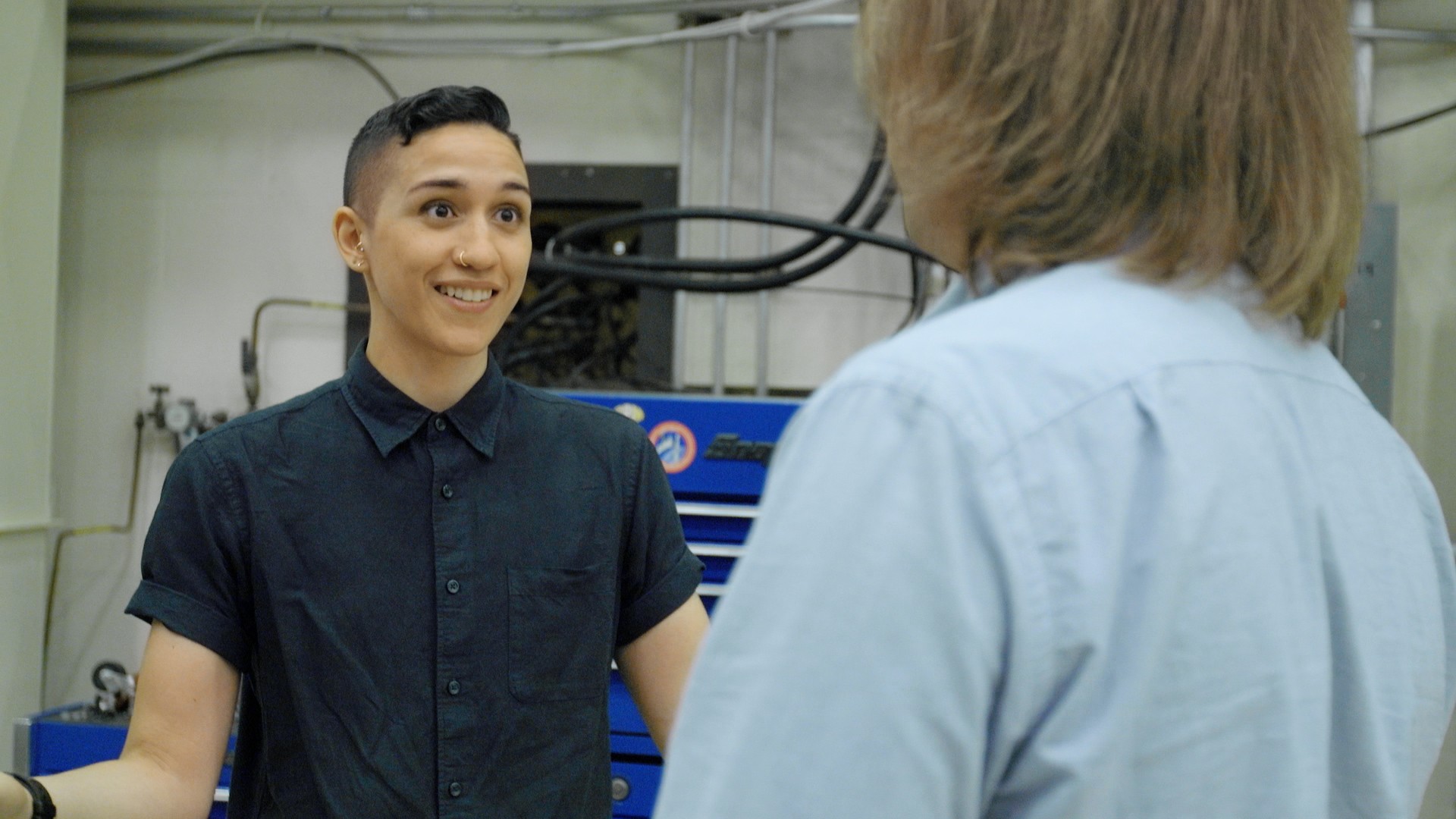screenshot courtesy of Square Enix
Postscript is Cameron Kunzelman's weekly column about endings, apocalypses, deaths, bosses, and all sorts of other finalities.Spoiler warning: We've just passed the 20th anniversary of Final Fantasy VII's release in North America, and this is a reflection on that game's legacy. It therefore contains spoilers!There are very few games that have a major impact on the way that we think about all games. These games, when they appear, have a warping effect; their gravity is like a black hole, and they drag players and designers down in them so deeply that it takes years for games culture to claw its way back into some semblance of being that is outside comparison and contrast with that game. The Legend of Zelda, Call of Duty 4, World of Warcraft, Farmville, and Dark Souls all share the curse and honor of being so powerful that they drew all of games toward them.Final Fantasy VII is also one of these games. It might be the biggest one, the one that captured so many people for so long that many people seem to have forgotten why they became so enthralled to begin with, and there are a number of reasons for that attachment. One is that it was the first 3D entry is a well-loved and popular series. Another is that it appeared on the PlayStation surrounded by a large ad campaign that stressed its cinematic storytelling. Yet another might be the form of that story and how it artfully pulled together a number of strands of traditional Final Fantasy storytelling: a rag-tag team tries to save the world; a tragedy befalls them; there is an evil-behind-the-evil in front of us that is more horrible than we can possibly imagine.All of these are familiar story tropes in video games and beyond. And yet, somehow, Final Fantasy VII's legacy has stuck with us much longer than many of the other 3D role-playing games for the original Playstation. It is talked about as a masterpiece, a timeless classic, and a game that needs to be remade more than 20 years later.The infinite conversation topic around Final Fantasy VII is its big turn in the middle: Aeris, the sweetheart maybe-love-interest who is the last on an ancient race of people connected to the earth in a primal way, is killed by super soldier/villain Sephiroth. It happens during a cutscene. It's as beautifully rendered as one could manage at the time. A character who the player has spent dozens of hours saving, helping, fighting battles with, leveling up, and talking to in longform conversations about environmental justice is dead.Brian Taylor's "Save Aeris," which is one of the best pieces of video game criticism of all time, documents some of the reaction to Aeris's death. The fan community, even in the time period between the Japanese release in January and the US release in September of 1997, actively worked to try to figure out how to reverse or prevent Aeris from dying. What Taylor doesn't address, and what the forum posts and other modes of inquiry over the past 20 years tend not to mention, is why people want to save Aeris.What is it about Final Fantasy VII that makes people want to change the past? Do they love Aeris? Is it the trauma of that all of that sunk cost, the battle time and the experience and the conversations, is gone forever? Is it the reality that the developers of Final Fantasy VII shattered the illusion that this game was all about the player and their desires? It's impossible to really know.Wanting to make things different than they were isn't surprising. Wanting to assert control on a fictional world when so much in our real world seems to be out of anyone's control makes a lot of sense to me. If the legacy of Final Fantasy VII has been one of dealing with the tragedy and emotional rawness of losing someone, and then finding grand meaning in that, then maybe it's time for us to shift perspectives.Playing Final Fantasy VII today is different than it was 20 years ago. The worldbuilding and concepts that seemed to recede into the background when I played the game around release are, to my adult mind, the most prescient and horrifying. This is a game that is fundamentally about economic and environmental justice.The world of Final Fantasy VII is entirely dominated by corporations who have polluted the world to such an extent that humanity has become cloistered in corporate-controlled nightmare cities where they're bottled up to rot in slums beneath metal plates. Their entertainment is provided by a mega corporation that runs a theme park that contains all of the hopes, dreams, and physical activities denied the average person. The world is dying, and it is the fault of those in power.Article continues below Tens of thousands of words have been written about Final Fantasy VII over the past 20 years, but very few of them have been dedicated to the political struggles of the game. A large number of the game's protagonists are ecological freedom fighters who are striking back at a corporate structure that is literally sucking the life force from the planet.Where we once might have read that vampiric corporatism as a metaphor for natural resources like oil, it's hard today to see it as anything other than the radical changes that we are seeing in the global climate. Unprecedented hurricanes like the one that flooded Houston, the massive rains and flooding that have struck southern Asia for the past several weeks, and the fires that have raged across the American west will come more and more. Our food is becoming less nutritious due to increased carbon dioxide in the atmosphere. Our capacity to live on this planet is diminishing, and it lies largely at the feet of governments who aren't interested in legislating about warming, populations who claim it's all a myth, and corporations chasing a bottom line.Final Fantasy VII is undeniably about loss. It is about living in the wake of bad things. And, fantastically, the protagonists of the game defeat the annihilation of all life by entering into a strategic alliance with their planet. It helps them win, in the end, although the costs are large.While the legacy of Final Fantasy VII has been focused on the loss of one person, the 20 year anniversary might be the time to reconsider that legacy. In response to our own global nightmare, it might be time to reconsider what the core of the game is, and to begin thinking less about what it says about individual loss and more about the communal action it dreamed up in response to global tragedy.You can follow Cameron on Twitter.
Tens of thousands of words have been written about Final Fantasy VII over the past 20 years, but very few of them have been dedicated to the political struggles of the game. A large number of the game's protagonists are ecological freedom fighters who are striking back at a corporate structure that is literally sucking the life force from the planet.Where we once might have read that vampiric corporatism as a metaphor for natural resources like oil, it's hard today to see it as anything other than the radical changes that we are seeing in the global climate. Unprecedented hurricanes like the one that flooded Houston, the massive rains and flooding that have struck southern Asia for the past several weeks, and the fires that have raged across the American west will come more and more. Our food is becoming less nutritious due to increased carbon dioxide in the atmosphere. Our capacity to live on this planet is diminishing, and it lies largely at the feet of governments who aren't interested in legislating about warming, populations who claim it's all a myth, and corporations chasing a bottom line.Final Fantasy VII is undeniably about loss. It is about living in the wake of bad things. And, fantastically, the protagonists of the game defeat the annihilation of all life by entering into a strategic alliance with their planet. It helps them win, in the end, although the costs are large.While the legacy of Final Fantasy VII has been focused on the loss of one person, the 20 year anniversary might be the time to reconsider that legacy. In response to our own global nightmare, it might be time to reconsider what the core of the game is, and to begin thinking less about what it says about individual loss and more about the communal action it dreamed up in response to global tragedy.You can follow Cameron on Twitter.
Advertisement
Advertisement
Advertisement

